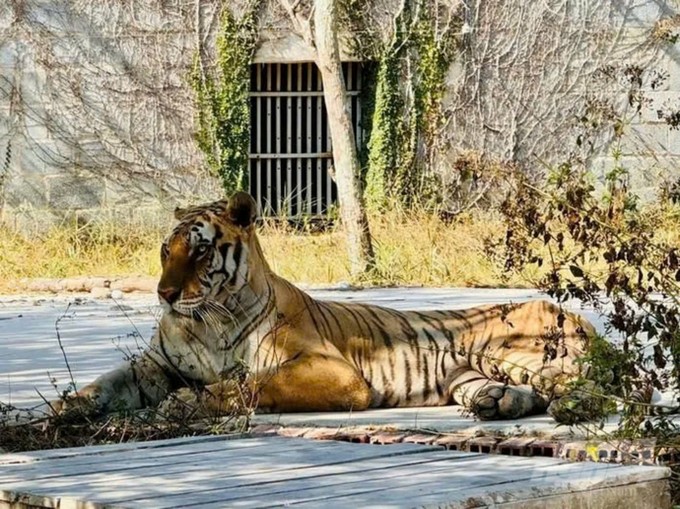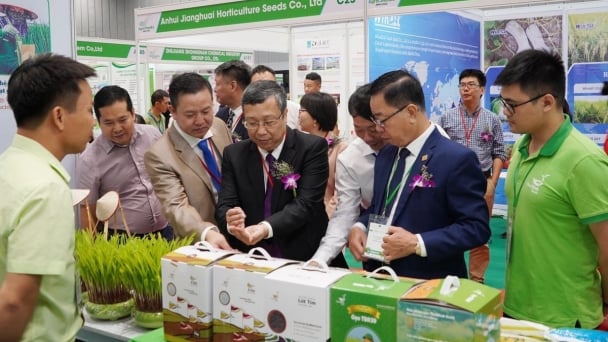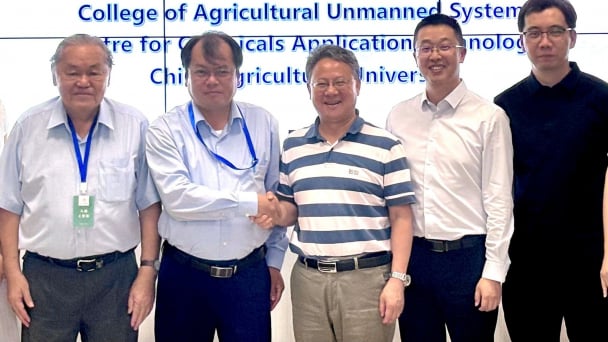June 26, 2025 | 18:32 GMT +7
June 26, 2025 | 18:32 GMT +7
Hotline: 0913.378.918
June 26, 2025 | 18:32 GMT +7
Hotline: 0913.378.918

The captive Bengal tiger that has just gone through the illness is recovering. Photo: H. Phuc.
According to test results of the National Centre for Veterinary Diagnosis, two tiger samples (including blood and viscera) taken on September 22 for testing have now tested positive for the H5N1 virus.
Doctor Phan Van Phuc, Head of the Department of Infectious Diseases Prevention and Control under the Center for Diseases Control of Dong Nai Province, said that on October 2, when working with representatives of the Mango Garden tourist area, he knew that before showing signs of infection and death, many tigers here had eaten chicken meat and chicken heads. This food was provided by a company located in Ho Nai ward, Bien Hoa city.
According to Dr. Phuc's judgment, it is likely that the tigers died due to being infected with the H5N1 virus from infected chicken meat. Therefore, functional agencies are tracing the origin of chicken meat to clarify the source of infection. From there, have solutions to localize, suppress the epidemic, and prevent its spread.
Explaining why the whole streak of tigers ate chicken meat but some died and some were still alive, Dr. Phuc said: It was possible that in the chicken flock of the unit supplying the Mango Garden tourist area, there were some infected animals and some uninfected animals. Therefore, any tiger that eats infected chickens will get sick and die. Any tiger that eats uninfected chickens is still healthy. Therefore, on this day (October 3), functional forces of Dong Nai province will trace the origin of chicken supplied to the Mango Garden tourist area.
H5N1 is a type of influenza A virus capable of causing dangerous infectious diseases in poultry. That's why H5N1 is also called avian influenza. Influenza A/H5N1 can be transmitted from poultry to humans. When infected, the mortality rate can be up to 60%. The H5N1 virus can infect and cause illness in humans when we have contact with infected poultry without protective measures.
Therefore, humans can be infected when contacting and touching diseased poultry; touching or inhaling secretions of diseased poultry; or contacting (slaughtering, processing with infected meat sources; eating undercooked poultry meat or eggs). There is currently no specific treatment for avian influenza in humans, nor is there a vaccine to prevent the disease.
Translated by Thu Huyen

(VAN) Vietnam and China are strengthening connectivity and cooperation in the field of crop varieties and agricultural materials, paving the way for sustainable development in the agricultural sectors of both countries.

(VAN) Over the past 20 years, Hai Phong has reduced the number of bears in captivity from 500 to just over 10, thanks to the efforts of the forest protection force.

(VAN) Prime Minister Pham Minh Chinh held talks with Chinese Premier Li Qiang on June 24, in Tianjin, China.

(VAN) On the occasion of attending the World Economic Forum (WEF) in Tianjin, China, on the morning of June 25 (local time), Prime Minister Pham Minh Chinh met with Senegalese Prime Minister Ousmane Sonko.

(VAN) The Net Zero door is opening, but no one can walk through it if they stay outside the mandatory emissions inventory roadmap starting in 2025.

(VAN) The visit to China Agricultural University opens up new prospects for high-tech agricultural cooperation, fostering connections between research institutes and enterprises of Vietnam - China.

(VAN) Con Dao, the emerald gem in the vast ocean, is undergoing a powerful revival, transforming into one of Vietnam’s leading ‘eco-spiritual paradises.’ In this journey.